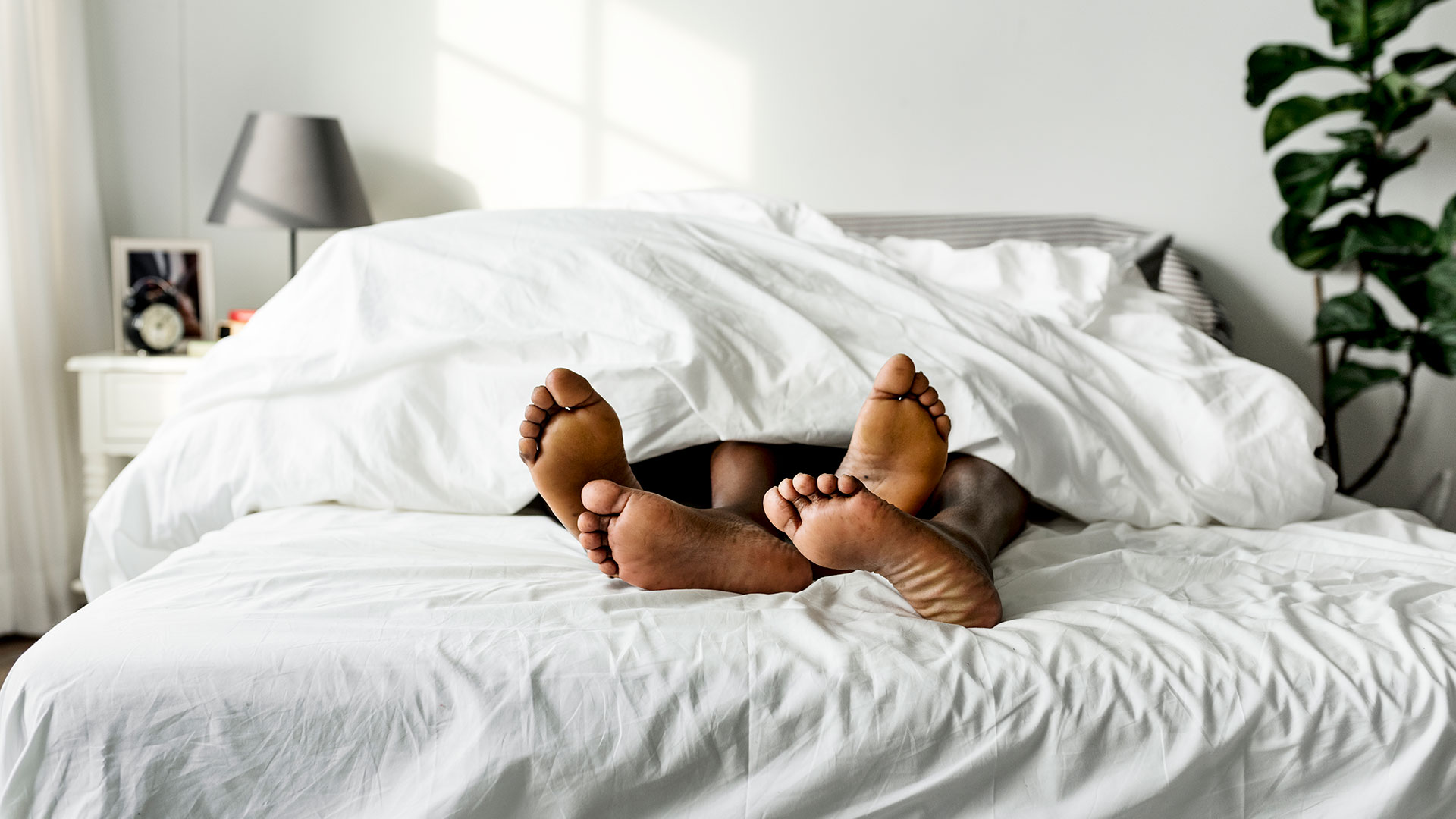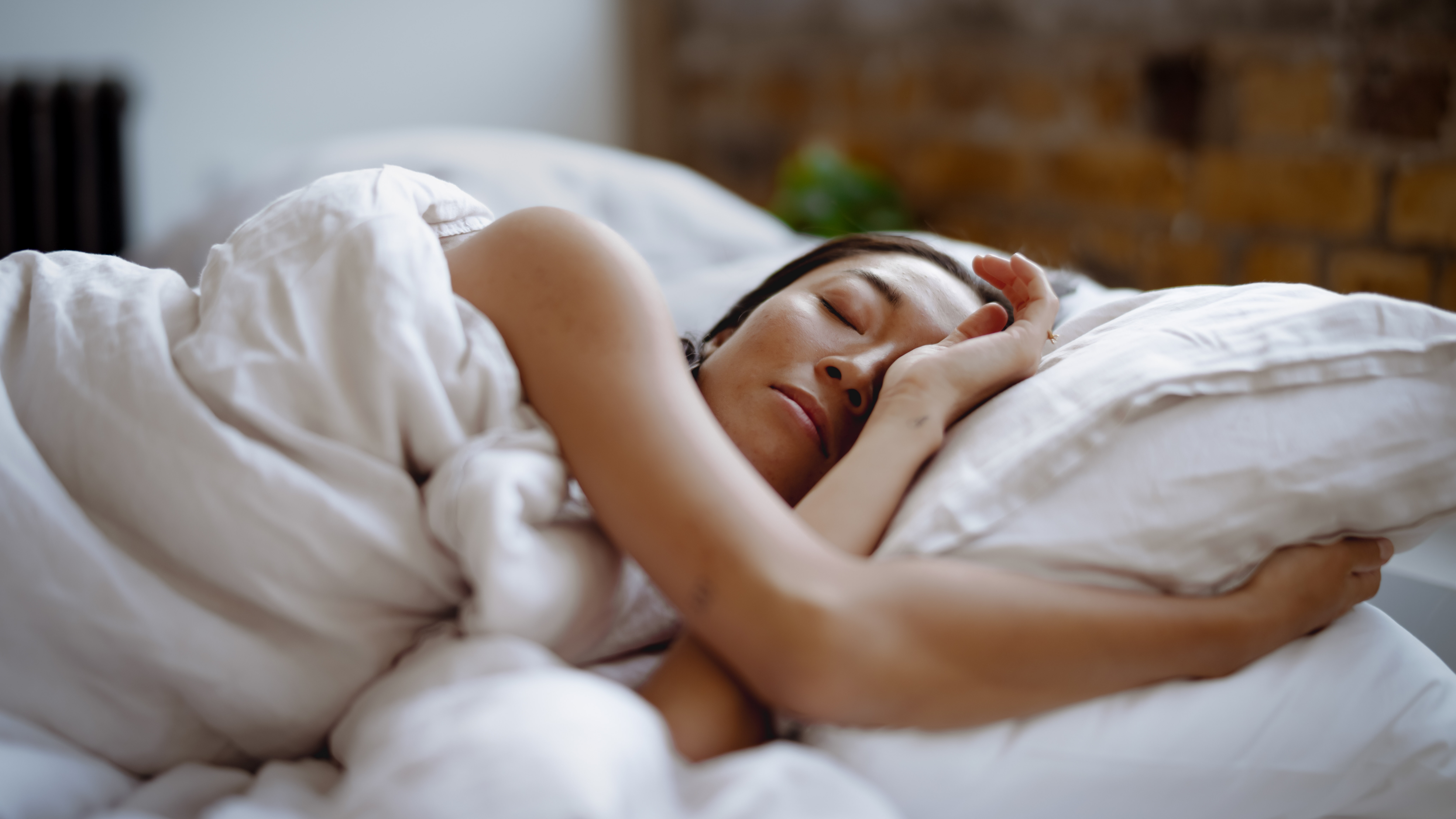

Summer temperatures are well and truly here, and when it's warm at night, sharing a bed can make the situation worse. The optimal bedroom temperature is around 19-21°C; going much above that can have a big impact on how easily you fall asleep and the quality of sleep you can achieve when you do finally drop off. It's part of the reason why all the best mattress companies bang on so much about temperature regulation properties.
According to recent studies, those who regularly share a bed with a partner tend to fall asleep faster and enjoy better quality sleep, but bunking up with an extra sweaty body next to you when you're already too hot to sleep isn't the most appealing.
We asked Theresa Schnorbach, Sleep Scientist at mattress company Emma for her advice on how to minimise the effects of heat when sharing a bed with a partner. Read on for her top tips, or check out T3's guide to how to sleep in a heatwave if you're in need of more advice.
1. Don't work out in the evening
When it's hot during the day, you might be tempted to shift your workout to later in the evening, when it's slightly cooler. Theresa warns that this can have a negative impact on sleep. "Physical activity increases your body’s core temperature which will inhibit the cooling down your body needs to do to ready itself for sleep," she explains. She also points out that this can also apply to other nocturnal activities. As an alternative, Theresa suggests working out in the early morning (here's more on when to stop exercising before bed.).
2. Have a cuddle
"It may feel like the last thing you want to do if your bodies are hot and sweaty, but a cuddle before bed can help in reducing your core temperature by encouraging your blood vessels to dilate thus losing excessive body heat," says Theresa.
3. Change floors
Heat rises, which means the upper floors of your home might well be warmer than the lower levels. It's not possible for everyone, but if sleeping on a lower floor is an option, that might bring with it more comfortable temperatures. If you don't have a spare room on your ground floor, Theresa suggests setting up your mattress or a blow up bed in the living room. (Our guide to the best camping beds has plenty of comfy, portable options to choose from).
"If you don’t have the space downstairs, then moving your mattress off the bed frame and onto the floor could be another option," she adds.
Sign up to the T3 newsletter for smarter living straight to your inbox
Get all the latest news, reviews, deals and buying guides on gorgeous tech, home and active products from the T3 experts
4. Try sleep divorce
There's a growing trend for sleep divorce, which is essentially choosing to sleep separately, so you both get the quality of sleep you need. If the tips above aren't working for you, summer is s good a time as any to try it out.
"If one or both of you run hot and you’ve tried everything but still can’t shake the heat sleeping next to your partner, then sleeping apart in different locations may provide some relief," suggests Theresa. Remember that it doesn't need to be a permanent solution, and you might only want to do it on really warm nights; whatever works for you as a couple.
5. Take a lukewarm shower
"A shower that is too cold will cause the body to sweat again to re-balance the body temperature, but a hot shower will have the same result," says Theresa. Instead, she suggests a lukewarm shower.
"After showering, try to keep your neck, wrists, elbows and ankles cool. If you keep these pulse points (where your blood flows closer to the surface of the skin) of your body cold, you will feel less hot," she adds. You can also refreshing these areas with a damp cloth or water spray, to help you feel cooler later on in the night.
6. Cool your room during the day
"In a hot environment, your body cannot properly balance its inside-outside temperature, leading to an overall inferior sleep quality," explains Theresa. "To limit the impact of a warm room, prepare for the night time by keeping your sleep environment cool throughout the day; this way you’re not having to fight the heat of the room as well as each other’s bodies."
A good way to do this is to keep windows and curtains / blinds closed during the day. It can also help to turn off any appliances that would otherwise be left on standby.
Ruth is a lifestyle journalist specialising in sleep and wellbeing. She has tested more mattresses than her small flat can handle and will talk at length about them to anyone who shows even a passing interest, and has had to implement a one-in-one-out pillow policy for fear of getting smothered in the night. As well as following all the industry trends and advancements in the mattress and bedding world, she regularly speaks to certified experts to delve into the science behind a great night's sleep, and offer you advice to help you get there. She's currently Sleep Editor on Tom's Guide and TechRadar, and prior to that ran the Outdoors and Wellness channels on T3 (now covered by Matt Kollat and Beth Girdler-Maslen respectively).
-
 I spent 6 weeks with the FoodMarble Aire 2: here’s what I learned about my gut health
I spent 6 weeks with the FoodMarble Aire 2: here’s what I learned about my gut healthI’ve been testing the clever breath-testing gadget with the companion app over several weeks to find out if it delivers on its promises
By Lee Bell
-
 Oil pulling is going viral on TikTok for stopping morning breath – but does it actually work?
Oil pulling is going viral on TikTok for stopping morning breath – but does it actually work?4 hacks that prevent morning breath, according to a sleep expert
By Bethan Girdler-Maslen
-
 These limited edition McLaren x Loop earplugs are what you need for Formula 1 season
These limited edition McLaren x Loop earplugs are what you need for Formula 1 seasonMcLaren teams up with Loop on limited edition noise-reducing earplugs
By Bethan Girdler-Maslen
-
 5 sleep supplements that help me achieve 8+ hours of rest every night
5 sleep supplements that help me achieve 8+ hours of rest every nightIt took me years to perfect my sleep routine – here are the supplements that helped
By Lizzie Wilmot
-
 3 reasons why you wake up at 3am every night – and how to avoid it
3 reasons why you wake up at 3am every night – and how to avoid itAlways waking up in the middle of the night? This could be why…
By Bethan Girdler-Maslen
-
 This tiny device will automatically disable your distracting apps before you sleep
This tiny device will automatically disable your distracting apps before you sleepSay hello to Kip...
By Lizzie Wilmot
-
 Therabody experts give 7 tips for perfecting your sleep routine for World Sleep Day
Therabody experts give 7 tips for perfecting your sleep routine for World Sleep DayFrom breathing exercises to sleep masks, here’s how to prioritise sleep, according to experts
By Bethan Girdler-Maslen
-
 Loop Dream review: super soft earplugs to help you snooze soundly, even if you’re a side sleeper
Loop Dream review: super soft earplugs to help you snooze soundly, even if you’re a side sleeperSquishy silicone and uniquely shaped ear tips take Loop’s nighttime earplugs to dreamy heights
By Joanna Ebsworth

